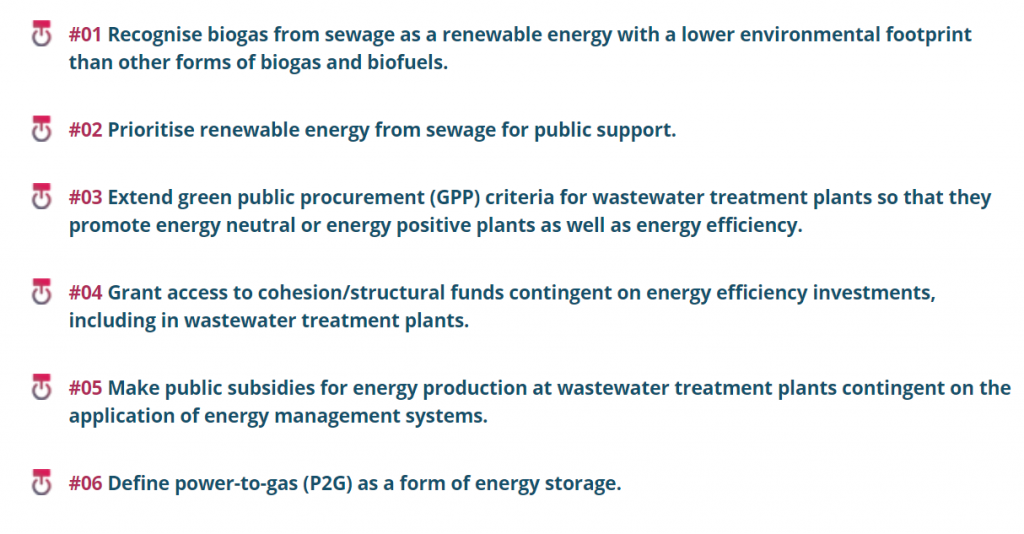Policy Brief: The potential of the wastewater sector in the energy transition
Today, European wastewater treatment plants consume the equivalent of more than two power plants’ worth of energy every year as well as a considerable portion – about a fifth- of municipalities’ electricity bills. The costs incurred by society equate to approximately €2 billion a year. Nonetheless, these plants could be producing up to twelve power plants’ worth of efficient, renewable, flexible energy to contribute towards a low-carbon, circular development of the European economy.
The EU co-funded POWERSTEP project, led by research and industry players, has demonstrated a range of full-scale lab-tested innovations for energy positive wastewater treatment. At its heart, the concept is based on the extraction of increased organic matter from wastewater which is converted into biogas and subsequently applied to new or existing plants at a similar cost to conventional treatment, resulting in a reasonable payback time.
Achieving an energy positive wastewater treatment plant is based on sound technological development that requires a combination of new concepts together with an optimised integration of available technologies, e.g. sludge digestion and biogas valorisation. POWERSTEP has demonstrated in six large-scale references in Austria, Denmark, Germany, Sweden, and Switzerland that WWTPs can improve their water treatment while harnessing the untapped potential of biomass as a renewable energy source.
A newly released Policy Brief shows that turning wastewater treatment plants into efficient renewable energy generators firmly complements the current goals of strengthening the European economy, coupled with securing its energy system and making a significant contribution to Europe’s international climate and sustainable development commitments. The Brief puts forward a set of policy recommendations at the EU level aimed at enabling the full potential of energy neutral or energy positive wastewater treatment plants using the PowerStep concept.
Boris Lesjean, Innovation Director of Veolia Germany, said: “PowerStep has demonstrated the energy potential of wastewater as a local renewable energy. The industry is prepared to support European countries that wish to embrace this forward-thinking concept. Appropriate and stable European and national policy frameworks are required to fully exploit this potential.”
By detailing exactly which factors should be considered in influencing and directing future EU policy, the Brief explores and outlines the benefits of facilitating projects such as PowerStep. For example, the recognition of biogas from sewage as a renewable energy source and prioritising public support for it, the European Union can bolster the adoption of PowerStep technologies in wastewater treatment plants to support Europe in becoming a renewable energy leader.
The Brief also touches upon the necessary changes needed to be made vis-à-vis green public procurement criteria for wastewater treatment plants as well as investments and public subsidy policy. If extended and access simplified, the pair can unlock the full potential of energy neutral or energy positive wastewater treatment plants using the PowerStep concept.
“The POWERSTEP Policy Brief is a strong statement from the project consortium to policy-makers that energy-neutral or even energy-positive WWTPs are no longer a dream.”
Christian Loderer, PowerStep Project Coordinator, Berlin Centre of Competence for Water & IWA Emerging Water Leader
To enable the full potential of energy neutral or even energy positive wastewater treatment plants using the PowerStep concept, the main recommendations of the policy brief are that EU policymakers:
Download the full policy brief ‘THE POTENTIAL OF THE WASTEWATER SECTOR IN THE ENERGY TRANSITION’ here.


